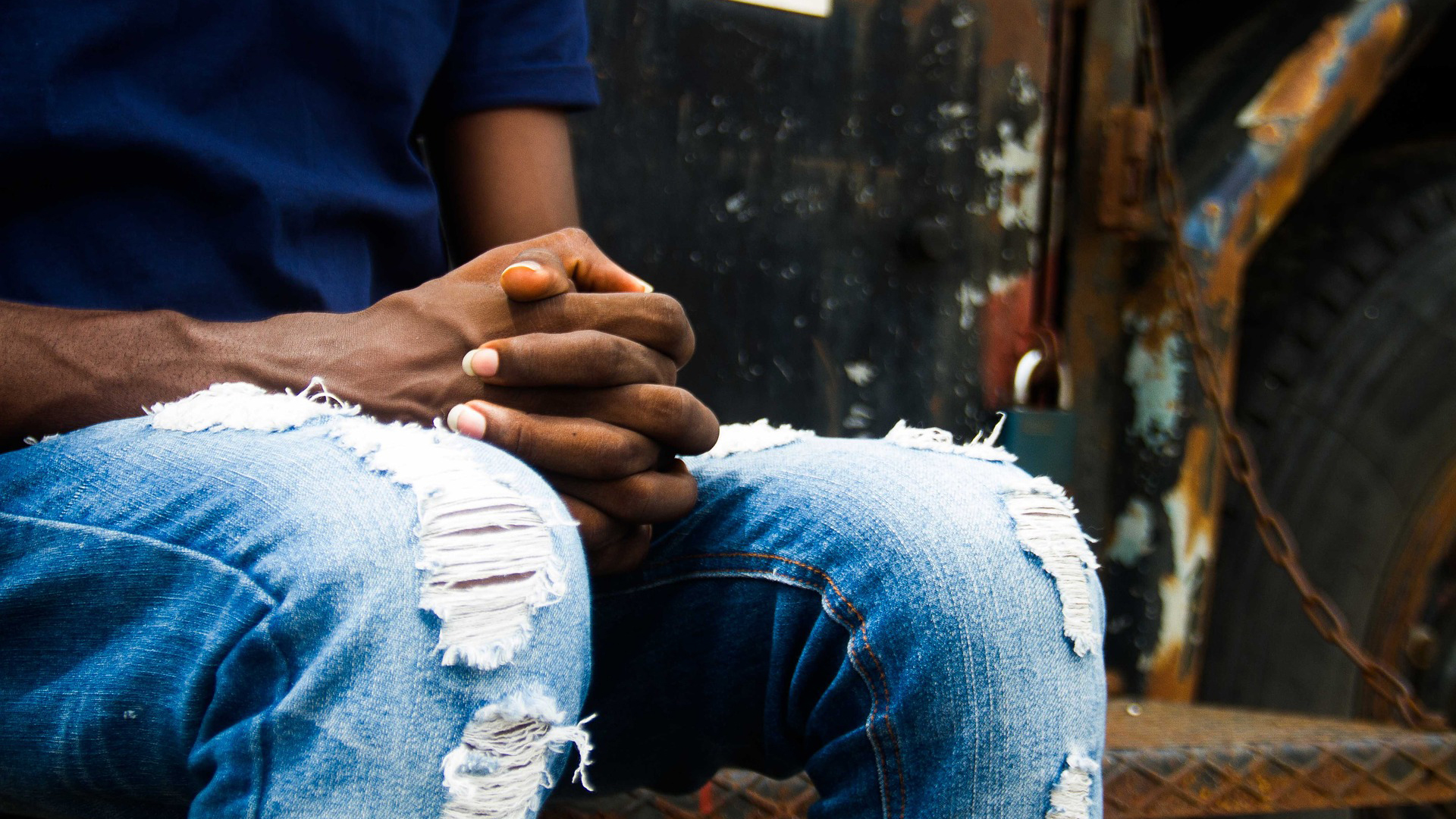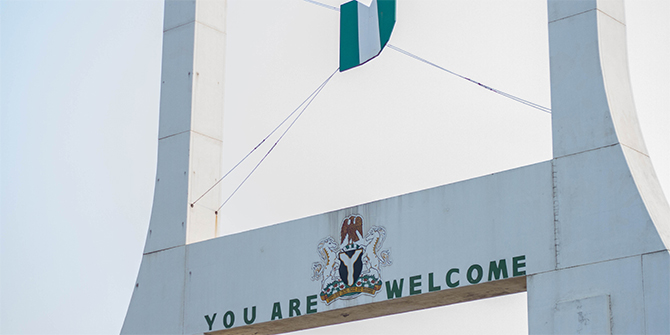President Buhari of Nigeria has asserted that after five years in power he has improved the economy and improved citizens’ lives by lifting millions out of poverty. The country’s new and unenviable reputation as the world’s ‘poverty capital’, however, has triggered questions about Buhari’s commitments, with ongoing national insecurity among factors affecting Nigeria’s economic direction.
Riding the crest of ‘change’ and ‘next level’ mantras into his first and second administrations, President Mohammed Buhari made significant promises to the Nigerian population, presenting the dividends the country stands to gain through his leadership. His positive assessment of his own performance during a recent ministerial retreat shows that the President believes he has not reneged on his promises on security, the economy and improving the overall quality of citizens’ lives by lifting millions out of poverty.
Such a self-assessment begs certain questions: could this stance be a political pretence or stem from a genuine insensitivity to the pulse of the street? With half a decade gone under his administration, are things really getting better for Nigerians under his administration? Are these promises mere platitudes and general statements to which political office aspirants and their parties are often held unaccountable?
With an unenviable reputation as the world’s new poverty capital, about 40% (82 million people) of Nigeria’s population are living on less than 1$US per day, according to figures from National Bureau of Statistics. Amidst repeated claims by the government of undertaking measured to alleviate poverty, the recent increase in fuel pump prices and electricity tariffs has triggered questions about Buhari’s commitments and priorities. Considering the economic downtown experienced by many Nigerians in a period marked by a remarkable loss of jobs and income, owing to the severity of the global COVID-19 pandemic, the decision to eliminate the expensive but popular petrol subsidy programme, and likewise the programme for electricity tariffs, is considered insensitive to the realities on ground and generally an act in bad-timing.
This further raises questions on the patterns of decisions, actions and mechanisms for feedback that have been undertaken by this government and the conflict they pose for the administration’s mandate for tackling poverty and achieving economic growth. A plethora of misunderstood, miscommunicated or outright problematic government decisions easily come to mind.
In the last five years, the price of food items has risen steadily, with rice that used to sell for 9,000 naira per bag in 2015 now tripled up to about 26,000 naira – a fact acknowledged by the Nigeria’s Minister for Finance, Budget and Planning, Zainab Ahmed. This has impacted disproportionately the poor in a country that is said to be already hosting a high population of the world’s poorest citizens. Considering the increasing prices of food commodities, Nigeria’s decision to close its borders, despite being a signatory to the African Continental Free Trade Agreement (AfCFTA), may have been considered as something done in the country’s best interest, with the intent of improving local production and agriculture. But even with the continued closure of the border and huge investments in domestic agricultural production, nothing seems to have changed substantially.
Economic re-engineering or crony capitalism
On the economic front, things are also looking gloomy. A prominent non-partisan private sector organisation, the Nigerian Economic Summit Group (NESG) recently criticised the Buhari administration for taking actions that left the economy prostrate for the last five years with rising inflation, contrasting GDP, unsustainable borrowing, a dwindling value of the naira, falling industrial capacity utilisation and frightening unemployment figures. The group frowned at the huge sums of money disbursed in the Anchor Borrowers Program, which linked larger companies with smallholder farmers, despite many Nigerians remaining hungry. Likewise, the billions of naira expended by the government, ostensibly to contain the economic shock as a result of the immediate aftermath of the pandemic, had no significant result in alleviating the country’s poverty status. These stakeholders thus find valid grounds to demand necessary explanation and transparency from the government and Central Bank authorities.
Furthermore, in their quest for transparency and accountability in the decisions being made on the economy, the group raised concerns about the newly enacted Bank and the Financial Institutions Act (BOFIA) 2020, which seeks to confer immunity on some Central Bank officials from prosecution. The NESG insists that such legislation is draconian, totalitarian and inimical to the development of transparent regulation of the financial sector. Although the CBN has vehemently denied this, many observers concur that some form of regulatory capture is not unlikely.
There is a developing backstory to these developments: the current governor of Central Bank, Godwin Emefiele, before his appointment served as the Managing Director of Zenith Bank, one of the biggest banks in the country and in which he still retains substantial stakes, according information leaked by Paradise papers. Thus, as a regulator, many analysts fear that it will be difficult for him to exercise necessary neutrality while presiding over an industry in which he once played.
Spreading insecurity amidst apparent helplessness
The administration has also failed in its mandate to ensure security, from which there are economic implications, coupled with an intersection with poverty. Despite government claims to the contrary, insecurity across the country appears to be spreading. The narrative that Boko Haram insurgents in the North East have been ‘technically defeated’ now appears propaganda as fatalities continue to be recorded from attacks. In addition, other bandits continue to cause mayhem through countless kidnappings and massacres in parts of Zamfara and the President’s home state, Katsina. An independent researcher, Dr Jose Luis Bazan, reported that an estimated 2,539 persons have been killed from 654 attacks between 2017 and 2020. In 2019, Nigeria was ranked 3rd below Afghanistan and Iraq out of 138 countries in the Global Terrorism Index and is said to be the 14th most fragile in the world and the 9th in Africa, according to the Fragile States Index. Unsurprisingly, in the same year the country was also ranked 148th out of 163 countries in the Global Peace Index, far below former war-ravaged countries like Sierra Leone (52), Liberia (59) and Rwanda (79).
Attacks and reprisal attacks have continued in states like Kaduna with accusations of ethnic cleansing and mismanagement of religious and cultural diversity. Part of the reason for the spread of insecurity that has allowed these groups to operate with impunity is due to what has been described by Scot Bower, Chief Operating Officer of the UK-based organisation CSW, as ‘the failure or unwillingness of those in authority to address these and other non-state actors and to secure ungoverned spaces, has not only allowed the violence to mutate, but has also created an environment in which Boko Haram can extend its operations’. The heightening insecurity continues to impact negatively on the business environment and business flows into the country. Recently, many stakeholders including civil society groups and the National Parliament asked the President to sack the country’s security chiefs or force them to resign due to ineptitude as a result of insecurity’s escalation.
Under President Buhari’s government, budgetary allocation dedicated to the recurrent component of internal security is said to be significant, yet it remains unknown. Other subnational governments regularly allocate resources too – something known as a ‘security vote’, which many citizens suspect to be another conduit. The impact of all such funding remains minimal at best.
The need to re-evaluate the achievements of the current administration in Nigeria through the lens of the economy and security is urgent. For instance, rising food prices can be linked clearly to the inaccessibility of farmlands taken over by criminal herdsmen and rampaging bandits due to prolonged conflict. One of the biggest fish markets in West Africa, located in Baga near the Lake Chad basin in North East Nigeria, has long been abandoned due to the ongoing Boko Haram insurgency. Any fair assessment of the Buhari’s administration must take these facts into consideration. These staggering statistics clearly have a verifiable impact on the direction of investment decisions whether foreign or local. In the end, it will affect both the perception of Nigeria globally and the reality of citizens’ livelihoods in this oil-rich country at home.
Photo: Nigerian President Muhammadu Buhari. Credit: Paul Kagame (CC BY-NC-ND 2.0).






U’ve don a nice job here, u did ur research very well. I pray Mr president comes across this write up and read meaning into it. Thanks so much sir